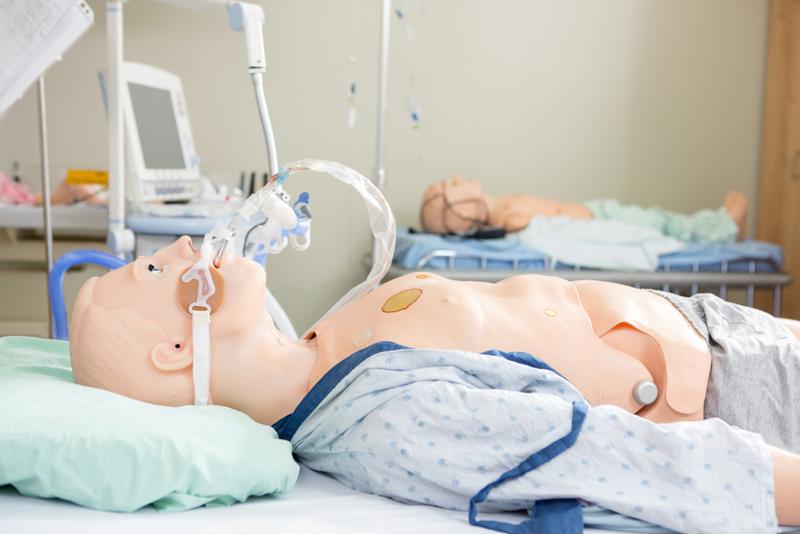Finding the right role in the travel nursing industry will help you develop a career you love. Of course, that perfect position is different for everyone. If you find fulfillment in work that's new every day, keeps you busy, has high stakes and requires compassion, then consider triage nursing. These professionals are at the front lines of emergency situations, helping patients get the immediate care they need. Take a look at this introduction to triage nursing to decide whether it's the perfect travel nursing role for you.
What triage nurses do
Triage nursing can change depending on the environment in which you work, but in general, these healthcare professionals help identify patients' needs and the severity of their cases. Here are a couple of places triage nurses can work and how that affects their jobs:
Emergency rooms
Triage nurses traditionally work in emergency rooms as the first set of eyes on incoming patients. They assess each individual, determining who needs care most urgently. Doctors then take those patients based on recommendations from the triage nurse. Effective professionals in this role can get patients the help they need and keep things moving in the ER.
Telehealth or distance
Telehealth triage nurses often work in call centers where they speak with patients from a distance either over the phone or through video chat. They hear the caller's symptoms and recommend next steps. For instance, they may advise patients to take simple steps (like rest, drink lots of fluids, etc.), see a a doctor, speak with a specialist or, in extreme cases, head to the emergency room. Telehealth triage is especially ideal for patients with low incomes or a lack of access to care. What's more, with the telehealth field seeing growth, triage nurses in this role will be on the cutting edge of the healthcare industry.
Both ER and telehealth triage roles are ideal for travel nursing. Make sure your healthcare staffing agency can assign you to either environment based on what you feel is a better fit.

Demands on triage nurses
Triage nursing can be a stressful role, especially in emergency situations. You'll have to decide how severe patients' cases are, and an incorrect recommendation can put people at risk. However, making a correct decision ultimately saves lives. As such, to be successful in this role, you should have the following qualities and skills:
Stress management
ERs are notoriously chaotic environments, and for many, that's appealing. If you're the kind of person who likes to have a packed schedule and thrives in tough situations, an ER triage nursing role is for you. Whether you answer calls and help people, or rush from patient to patient in person, being able to manage stress in any kind of medical role is important.
Empathy
Especially for those answering calls, empathy is a must for travel triage nursing. You have to be able to tell just how much pain or distress individuals are in, which, as a subjective thing, can be difficult. With that in mind, however, you must also be able to distance yourself emotionally at the right times to avoid being overwhelmed.
Decisive
You'll have minutes to make big decisions, so being decisive is a must. Both on the phone and in person, you won't have time to mull over symptoms.
High ability
Above all else, triage nurses have to be great at their jobs. Because they have little time to make important calls, being able to decipher symptoms is an asset. That comes from great schooling and years of experience.
Required certifications and education
While each state's rules may differ, for the most part, triage nurses need a minimum of an associate's degree and certification. The Emergency Nurses Association notes that ER triage nurses must be registered nurses. It also lays out courses and skills that'll help you prepare for an ER role. Additionally, Nurse Journal points out that once nurses have their associate's or bachelor's and have worked in a hospital for three years, they may go on to acquire a master's. They can then become a Certified Emergency Nurse through the Board of Certification in Emergency Nursing.
No matter what your state requires of its triage nurses, continuing your education and training can help you perform the role more efficiently, stand out when applying for travel nurse jobs and earn a higher income. If you're looking to be a travel nurse, consider where you'll be assigned when deciding which state requirements you plan to meet.

Job outlooks
According to the U.S. Bureau of Labor Statistics, registered nurses (the designation required for triage nursing) made an average of $67,490 in 2015. Additionally, it estimates the field will grow by 16 percent between 2014 and 2024, a rate that's faster than average. Where you work, both in terms of location and environment, can impact what you actually make as a travel triage nurse. Additionally, more schooling and certifications can help extend your earnings.
Is travel triage nursing right for me?
Combining a travel profession with triage nursing can be a good fit. You'll bring a unique experience to the hospital or medical call center you're assigned to, help invigorate the permanent staff and get to do something you love while living an adventurous lifestyle.
If the demands of this role listed above fit you, triage nursing could be the profession you're looking for. Those who can make fast and accurate decisions, have a strong history of diagnosing patients, are empathetic and understanding, and thrive in fast-paced environments make natural triage nurses.

